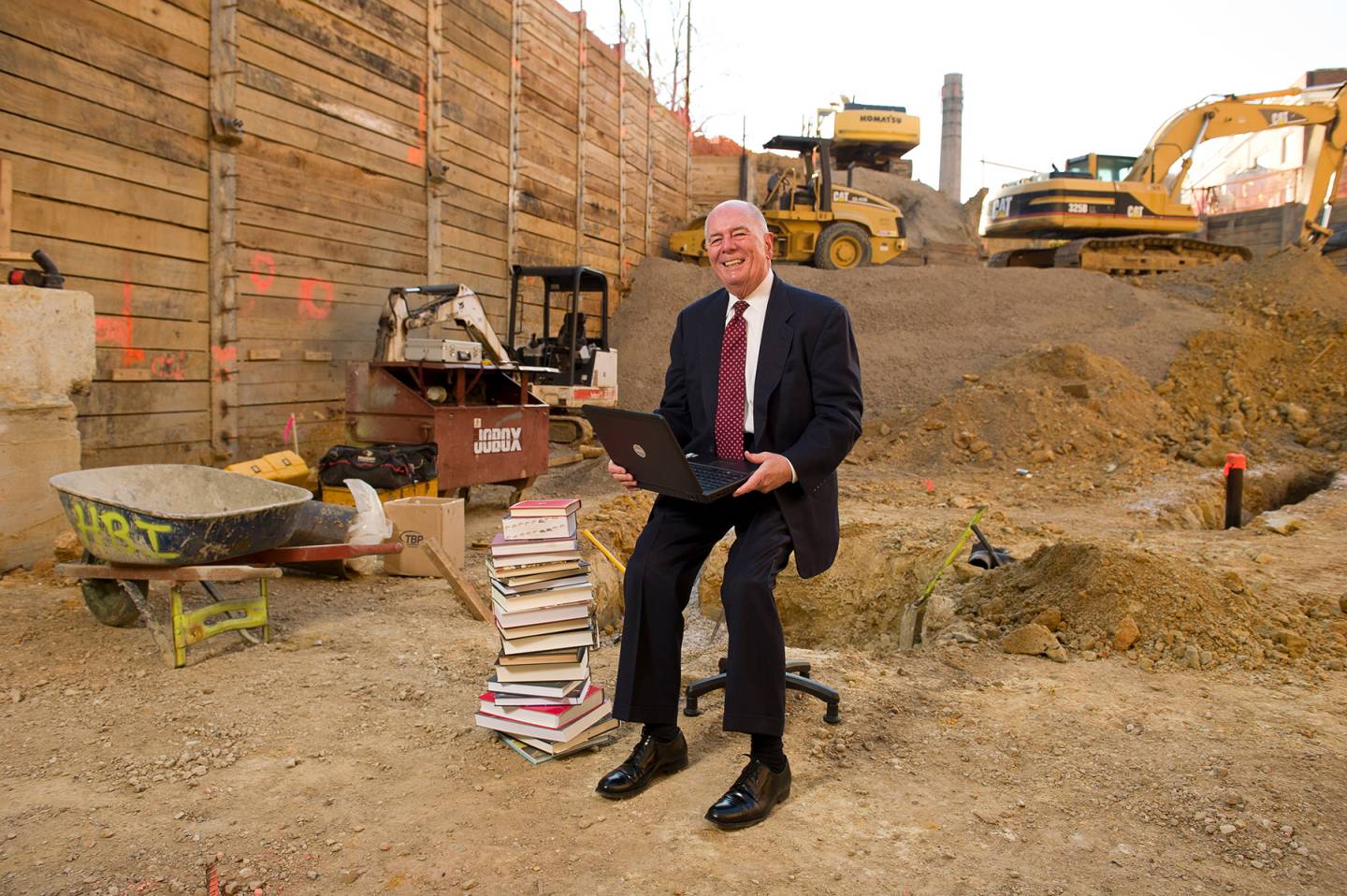Winston Tabb, who has served as Sheridan Dean of University Libraries, Archives and Museums at Johns Hopkins University since September 2002 as part of a distinguished libraries career that has spanned five decades, plans to retire next year, JHU President Ron Daniels and Provost Sunil Kumar announced today in a message to the university community.
Image caption: Winston Tabb
Image credit: Will Kirk / Johns Hopkins University
Tabb will remain at Johns Hopkins until a successor is in place to ensure a smooth transition, Daniels and Kumar wrote. The university is in the process of forming a search committee to identify a new leader for the libraries.
"Please join us in thanking Winston for his service to all the scholars who use our library resources," Daniels and Kumar wrote. "His embrace and stewardship of new projects and his deep commitment to sharing information, history, and public art with the university community and beyond has made a tremendous impact on Johns Hopkins and those we serve."
In his role, Tabb—who joined Johns Hopkins after a 30-year career at the Library of Congress—oversees library services in the five Sheridan Libraries and coordinates library services provided by all schools of the university through the University Library Directors Council, which he created and chairs. He is also director of Johns Hopkins' two historic house museums, Homewood Museum and Evergreen Museum & Library.
Early in his time at Johns Hopkins, Tabb led the unification of several major library systems into a single system to offer better and more seamless service to all library users across the institution. He also set up the libraries to operate more efficiently and economically by sharing all electronic resources as one university.
He led adoption of JHU's first "open access" policy, supported the development of PASS (public access submission system) to make compliance simple for JHU authors, and he worked with faculty across the university to develop a proposal for a JHU-wide Open Scholarship Committee. He also oversaw creation of the first Open Source Programs Office, or OSPO, at an American university.
"When I think of Winston, a number of his great qualities come to mind," said Chris Celenza, dean of the university's Krieger School of Arts & Sciences. "First, he is a leader who trusts and enfranchises others. Recognizing the value in even an incipient project, he brings the best out of people and helps things come to fruition."
Celenza also noted that an enduring piece of Tabb's legacy are his efforts to build the university's Special Collections and acquire, in partnership with many friends of the library, dozens of important research collections.
"Especially in the current environment, with electronic resources and fast interlibrary loan systems erasing some of the traditionally collection-size oriented differentiators among libraries, it is really Special Collections that make a library unique," Celenza said. "Winston understood that early on, and he has shepherded some fantastic acquisitions."
Tabb has also been instrumental in construction planning for several major library projects, including the Brody Learning Commons, the Library Services Center at the Johns Hopkins Applied Physics Lab, and the renovations of the George Peabody Library and the Hutzler Reading Room. He is currently leading planning efforts for a renovation of the Milton S. Eisenhower Library on the Homewood campus and a new JHU library at the 555 Penn building in Washington, D.C., as the JHU libraries look toward the future of service in a changing information landscape.

Image caption: Winston Tabb is pictured in the construction footprint for the future Brody Learning Commons in this December 2010 photo.
Image credit: Will Kirk / Johns Hopkins University
As chair of the university's Art Review Panel, Tabb has overseen acquisition of campus art over the years. He has also worked with community groups to support internships, educational opportunities, and improved public access to information.
Tabb has been joined in his commitment to Johns Hopkins libraries by his wife Marilyn, who twice was elected President of the Johns Hopkins Woman's Club and also served as a volunteer for many years in the Barclay School library.
Tabb is a past president of the Association of Research Libraries and also serves on numerous boards, including as the official representative of the International Federation of Library Associations and Institutions to the World Intellectual Property Organization in Geneva. In 2012 he was named an Honorary Fellow of IFLA, the association's highest honor.
Celenza, who has served with Tabb on the Council on Library and Information Resources, said Tabb is widely respected, nationally and internationally, and "seen as a leader and as a facilitator of important conversations and initiatives."
"Finally," he added, "there is something less tangible, perhaps, but no less important: the culture he created in the library, leading by example. Librarians are highly trained experts, to be sure; but they also need to be creative, service-oriented, and outward-facing to their communities. I think that one of the reasons our library works so well is that Winston has led the way on that front: he is generous, kind, and thoughtful, and he has set the tone accordingly."
Posted in University News
Tagged sheridan libraries, winston tabb







